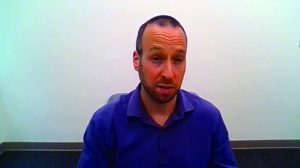 Kevin Beck, senior manager, Miltenyi Biotec
Kevin Beck, senior manager, Miltenyi Biotec
Beck’s presentation highlighted developments within Miltenyi subsidiary Lentigen Technology, a contract development and manufacturing organization (CDMO) that specializes in lentivirus (LV)-vectored cell therapy products. Lentigen’s original facility in Gaithersburg, MD, occupies 40,000 ft2 and features two ISO 7–compliant cleanrooms for lentivirus vector platform production, both of which comply with EU and US good manufacturing practice (GMP) guidelines. The company manufactures 80 lots/year but plans to boost manufacturing by launching a similarly equipped site in Teterow, Germany, and a second facility in Gaithersburg to add four ISO 7 cleanrooms and 160 lots of production capacity.
Beck explained why his company focuses on third-generation LV vectors. They exhibit strong biosafety profiles and show little risk of generating replication-competent particles, yet with envelope plasmids such as that of vesicular stomatitis virus G (VSV-G) can confer broad infectivity. Upstream, LV vectors provide stable yet efficient transduction of both dividing and nondividing cells. LV also can carry high gene payloads, a feature that can be useful for producing two- and even three-molecule chimeric antigen receptor (CAR) T-cell constructs. Downstream specialists benefit because LV vectors maximize transgene expression and enable strong recovery.
Following its 2014 acquisition by Miltenyi, Lentigen adopted Miltenyi’s CliniMACS Prodigy T-cell engineering workflow, enabling vector products to be delivered in vials and weldable bioprocess bags. In 2017, Lentigen developed a serum-free suspension (SFS) process. Beck explained that SFS exhibits a better chemistry, manufacturing, and controls (CMC) profile than an adherent process does because it uses chemically defined components. SFS also improves yield and scalability.
Beck compared data from Lentigen’s legacy (adherent) and SFS processes to reinforce that point. Lentigen’s adherent CAR-T process maxed out at 32 L, at which harvest titers and total yield could reach 5.0 × 106 and 9.4 × 1010, respectively. On the other hand, 50-L and 200-L SFS batches can produce harvests of 1.6 × 107 and 2.5 × 107 and total yields of 3.6 × 1010 and 3.95 × 1012. Beck added that such increases in scale and yield do not diminish product efficacy or quality.
After offering data, Beck elaborated on the SFS process itself. He observed that the process comprises conventional upstream and downstream activities. Upstream specialists maintain a “rolling culture” to minimize how much time it takes to seed production vessels. When production-vessel cell density reaches an appropriate level, one transfer, one envelope, and two packaging plasmids are transfected. Then the resulting harvest is transferred to downstream teams for clarification and chromatographic purification, followed by sterilization, formulation, and fill–finish.
Lentigen engages clients as early as drug development and feasibility. It can provide small-scale research-grade batches of nonpurified vectors to help clients compare their constructs’ manufacturability. Once a client selects its candidate, Lentigen teams produce a 4-L demonstration batch that helps to predict a molecule’s behavior in 50-L and 200-L SFS processes. Clients can request larger preclinical batches, but the SFS platform has enough predictive value to advance therapies directly to GMP manufacturing, accelerating development timelines without undercutting product or process knowledge.
Contract partners also can guide clients through regulatory concerns. Beck highlighted the maturity of Lentigen’s ISO 9001– and 13485–certified quality control (QC) and analytical method development teams, which work closely with clients and apply quality by design (QbD) approaches to determine links between a product’s critical quality attributes and manufacturing operations. He also observed that over 30 years, Miltenyi has developed several supports for filing documents with regulatory agencies around the world. Lentigen can leverage its parent company’s experience in this arena and lend its own expertise with US Food and Drug Administration (FDA) investigational new drug (IND) and device exemption (IDE) applications. Beck added that Lentigen has biologics master files in place with the FDA and Health Canada.
Watch the complete presentation now.
